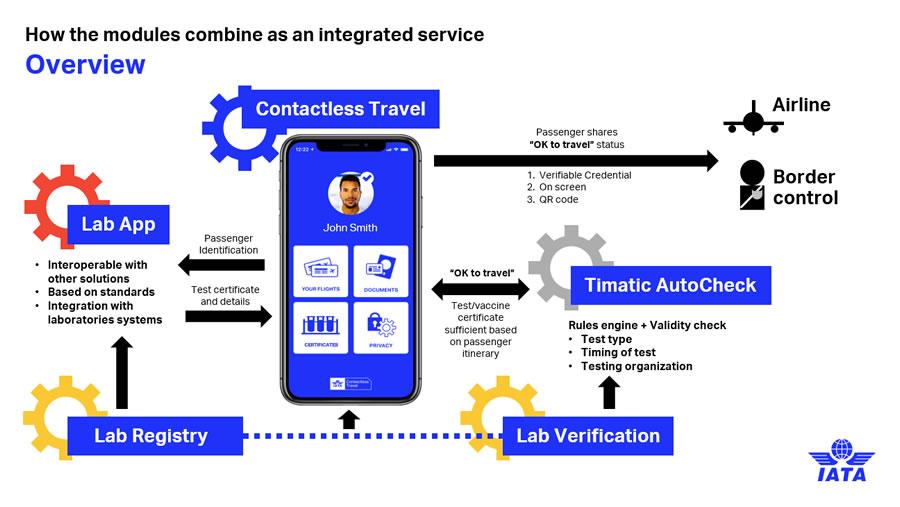IATA Sees Permanent Improvement In Crisis Management, Contactless Travel

FRANKFURT—IATA is hopeful that measures put in place to deal with the fall-out of the COVID-19 pandemic will enable the industry to more quickly respond to future health or other challenges.
While the global airline body expects measures to be receded once the threat of infection with the virus is mitigated, they “can be turned back on in the next crisis,” IATA SVP airport passenger cargo and security Nick Careen said Dec. 12. The COVID-19 crisis is serving “as an enabler for biometric processes. In 2020, paper solutions just don’t work anymore.”
Careen sees lasting improvements in contactless check-in, security and boarding from which the industry can benefit in more normal times, making the travel experience more pleasant for passengers and more efficient for airlines and airports.
IATA is promoting the idea of its travel pass, a mobile phone app that stores information about travel prerequisites and logistics such as testing and vaccination centers that passengers can use. The app also stores information about the traveler’s own health status, mainly whether they have been vaccinated and should therefore no longer face travel limitations based on health concerns.
The association plans to roll out the app in the first quarter of 2021, as other similar projects are underway. Careen stressed the importance of a global harmonized solution to avoid passenger confusion but made clear that IATA is not trying to compete with others and will keep the app “open for everyone to use.”
IATA has launched several pilot projects with governments and airlines, including International Airlines Group (IAG) and others IATA has not yet disclosed. Based on the feedback received, Careen is confident that governments will accept the travel pass as a means for passengers to document their health status, among other functions.
“If there ever was an annus horribilis it was 2020,” IATA director general and CEO Alexandre de Juniac said. In his opinion, 2021 will be a better year for the industry, “but the virus is going to be with us for some time. The challenge is learning to live with it and effectively manage the risks.”
IATA has been pushing hard on having borders reopened based on broad testing and without industry-crippling quarantines. While it has gathered support by institutions like EASA, such regimes have not yet been implemented widely and efforts to do so are being slowed by the second wave of COVID-19 in Europe and the third wave in the U.S. “We don’t see an exit plan,” de Juniac criticized. “There was no entrance plan to start with.”
De Juniac believes that most airlines will survive 2021 “if governments continue their support plans,” though he expects more bankruptcies, too. Consolidation in the form of mergers and takeovers will be difficult to achieve for the time being, de Juniac argued, as airlines will have difficulties to justify spending money, foreign ownership limitations will remain, and governments will not cede “control of national assets they have invested in.”





